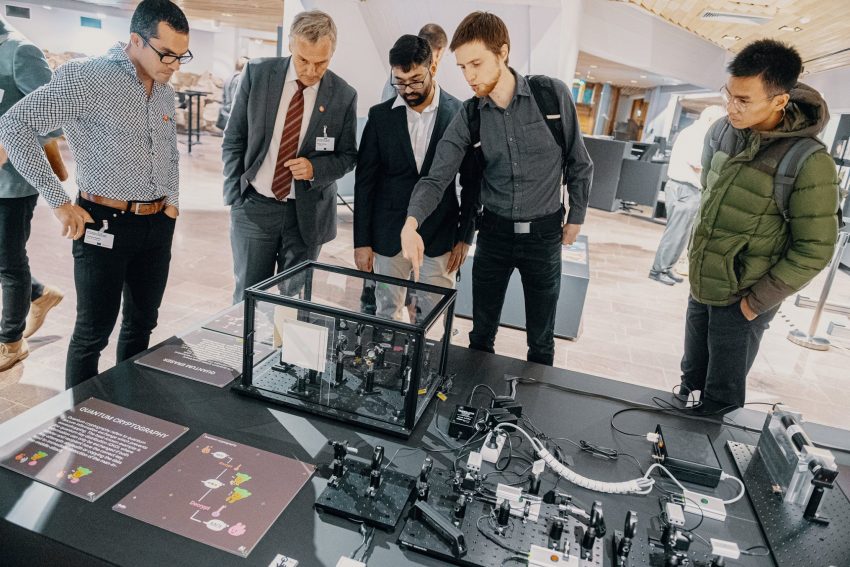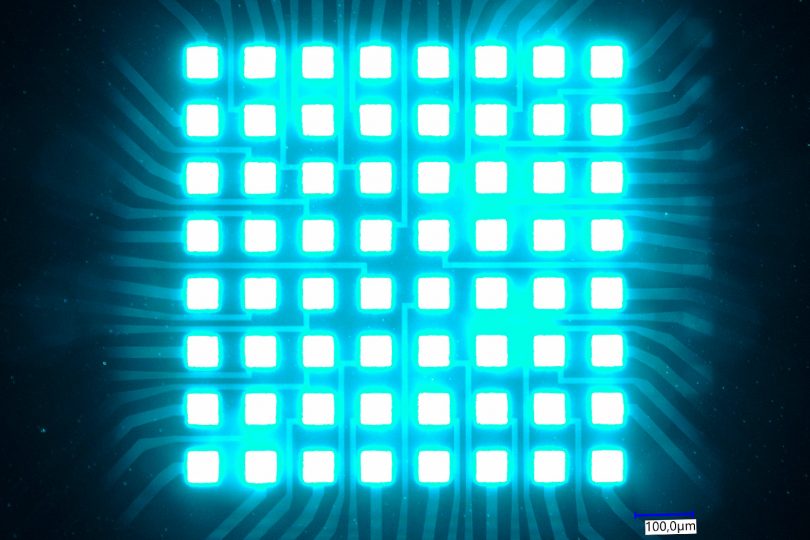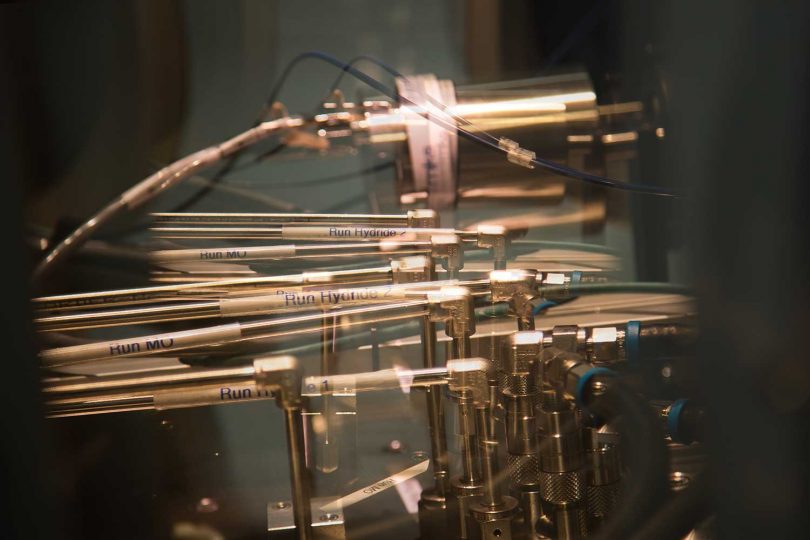Europe in view, the region in focus Professor Rainer Müller in the new EU coordination body for quantum issues
The European Quantum Flagship network is entering its next phase. On 1 May 2022, Qucats was launched as a coordinating body. It serves as a bridge between the Flagship’s content projects and the European Commission. Professor Rainer Müller from Technische Universität Braunschweig is part of the new coordinating body. As a physics didactician, he is one of five workpackage leaders in the project. The EU is funding Qucats with 6 million euros.

What does a sound knowledge of quantum need? This question shapes both Master’s programmes and the individual lecture structure like this one on quantum cryptography across Europe. Photo credit: Quantum Flagship
What was previously done by three CSAs (Coordination and Support Actions) is now centralised by Qucats: the coordination of research, education and international cooperation in the field of quantum science and technology. Qucats has two main tasks here. On the one hand, it is to pass on the impulses of the European Commission to the countries, and on the other hand, it is to reflect back to the Commission the developments from the countries.
In the area of Quantum Education, the focus is primarily on further education and training for industry as well as university Master’s programmes. “The Quantum Flagship is very application-oriented in this area,” says Professor Rainer Müller. “For example, we record the needs of industry and try to sharpen future job profiles for quantum technologies. What do you have to learn for this? Who is needed? Individual companies cannot answer these questions. Therefore, we get an overview from a bird’s eye view and reflect that, for example, to the emerging quantum master’s degree programmes.”
Preparatory work for the quantum-strong Hannover-Braunschweig region
As part of the CSA QTEdu, this method of working has already resulted in a competence framework, a kind of map of possible quantum competences, and qualification profiles that make requirements from industry tangible. Together with industry, Qucats is to merge both of these into a Europe-wide certification system. In addition, interested parties from research and industry are to be better networked. Furthermore, a database will provide an overview of teaching/learning materials on quantum topics and a mobility programme will expand the existing offers.
Professor Rainer Müller: “We are already benefiting from the work at EU level in our Hannover-Braunschweig region, for example in our QuantumFrontiers and Quantum Valley Lower Saxony (QVLS) networks. For example, the Quantum Technology Centre (QTZ) at the Physikalisch-Technische Bundesanstalt is building its in-service training courses on the work of the Quantum Flagship. The new quantum master’s degree programmes at TU Braunschweig and the University of Hannover also benefit.”
About the project
Qucats brings together researchers from eight countries (Denmark, Finland, France, Germany, Italy, the Netherlands, Portugal and Spain). The European Union is providing 6 million euros in funding for the next three years. Of this, 500,000 euros will go to TU Braunschweig.


